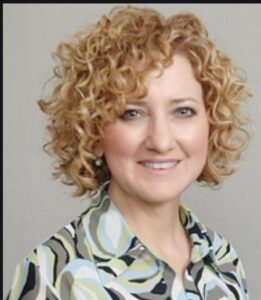
It was holiday time, the end of 2020, when Miriam came into the office of AZCEND, a Chandler nonprofit that helps families, senior citizens and individuals who are living in poverty and crisis.
During the COVID-19 pandemic, the Chandler woman and her husband had their work hours reduced. They were behind on their rent and utility payments, and struggling with increased grocery bills, too. Because school was closed to their three children, free breakfasts and lunches no longer were available to them.
The family needed help in order to stay in their home, and AZCEND stepped up, providing cash assistance to them as well as to thousands of others during the darkest months of the pandemic.
AZCEND, which also provides Meals on Wheels to homebound elderly, emergency housing to homeless people, parenting, health and literacy classes to families and other services, is among hundreds of Arizona nonprofits that have been devastated by the pandemic.
According to the Alliance of Arizona Nonprofits, this sector reported losses of $91 million in revenue during 2020, a 52 percent drop from 2019. At the same time, nonprofits sustained an increase of more than $15 million in expenses, primarily for personal protective equipment, supplies and technology.
That’s why Arizona Gives Day on April 6 is more vital than ever to assisting nonprofits.
An annual collaboration of the alliance and Arizona Grantmakers Forum, the online giving campaign has helped raise more than $23 million for nonprofits across the state since 2013.
Arizona Gives Day helps people find, learn about and contribute to local causes they believe in, and enables nonprofits to share their stories and engage the community. It raises awareness about the critical role that nonprofits play, and inspires people to give generously, in turn strengthening Arizona and creating a thriving community.

More than 1,000 nonprofits are participating this year, from faith-based organizations, such as Lutheran Social Services of the Southwest and Catholic Charities Community Services, to animal-rights groups, like Southwest Wildlife Conservation Center, and youth-development associations, such as Big Brothers Big Sisters of Central Arizona.
“Arizona Gives Day puts a human face on the need, and brings an understanding of people’s struggles,” said Trinity Donovan, CEO of AZCEND, which hopes to raise $10,000. “They look different from one person to the next. Some are on the brink of eviction or losing their job, wondering how they’re going to feed their kids or seniors wondering how they will get their meals.”
AZCEND experienced a doubling of requests for its Meals on Wheels Program, to 1,400 meals per week during COVID-19, and applications for rent, mortgage and utility assistance grew to 6,000 payments in 2020 from 2,700 the previous year.
Donovan said her organization primarily will use social media and online communication with supporters to publicize its campaign. It also will tie in an annual fundraiser, the Virtual Walk in the Park to End Poverty, on April 10.
Arizona nonprofits have an annual economic impact of $22.4 billion, more than 8 percent of gross state product, and account for 325,000 jobs, making the sector the state’s fifth-largest non-government employer, according to the alliance.

“The nonprofit sector is a major employer of essential workers, such as those at Tempe Community Action Agency, which stayed open during the entire pandemic to help people address their needs and make the community a better place,” said Deborah Arteaga, TCAA’s CEO.
TCAA has Tempe’s largest food pantry, three senior centers, an emergency shelter and several other programs in its mission to tackle poverty, hunger and homelessness, Arteaga said.
It served 3,240 more people in 2020 than in 2019 and experienced a 37 percent rise in food-pantry customers and 66 percent increased demand for home-delivered meals for seniors.
The nonprofit hopes to raise $5,000 to $10,000 on Arizona Gives Day to support its Financial Success Center, which addresses issues that become problems that lead to poverty, said Joe Rivera, director of philanthropy.
The center offers employment assistance, financial coaching, income support and partners with Maricopa County to offer career counseling, Arteaga said.
“This year’s focus is to help people impacted by the pandemic and get them back into the workforce or gain more permanent employment,” she said.

